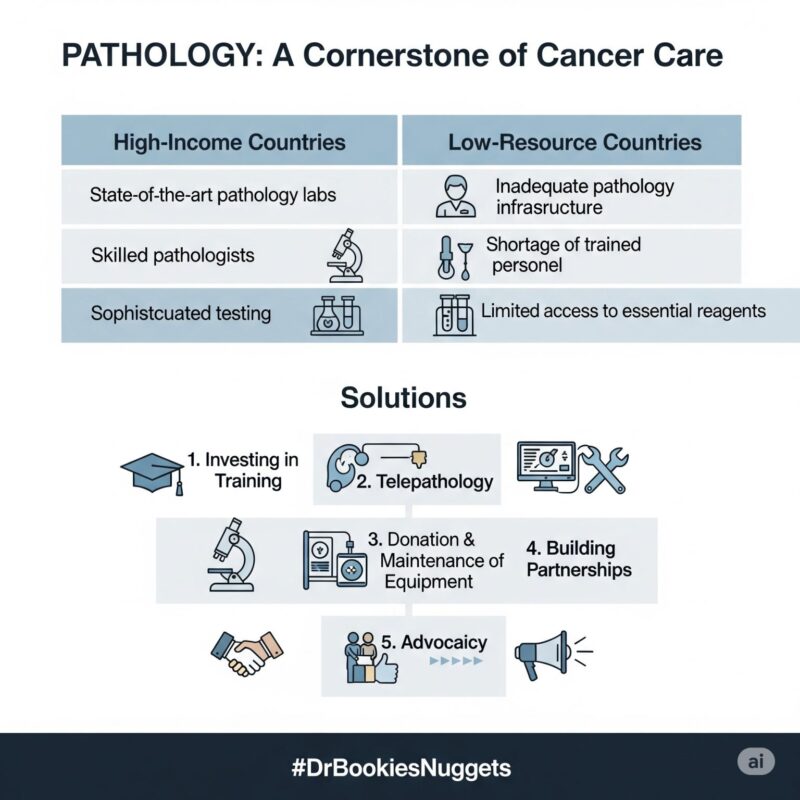Olubukola Ayodele, Breast Cancer Lead at University Hospitals of Leicester NHS Trust, shared a post on LinkedIn:
“I made a post the other day about the absolutely critical role pathology plays in cancer care. It’s the bedrock.
Without an accurate pathological diagnosis, we can’t truly understand a patient’s cancer: its type, its stage, its unique characteristics. And without that understanding, we can’t develop the most effective treatment plan.
Here in a high-income country like the UK, we often take for granted our access to state-of-the-art pathology labs, skilled pathologists and the sophisticated testing that informs our decisions. We rely on it for everything from initial diagnosis to guiding targeted therapies and monitoring treatment response.
But this isn’t the reality everywhere. In many low-resource countries, inadequate pathology infrastructure is a massive barrier to effective cancer care. This isn’t just about a lack of microscopes; it’s about a shortage of trained personnel, limited access to essential reagents, and insufficient quality control measures. This creates a devastating health equity gap, where individuals in these regions may face delayed diagnoses, misdiagnoses, and consequently, poorer outcomes.
This problem is solvable and we have a responsibility to act.
How can we mitigate this issue?
- Investing in Training: Supporting programs that train pathologists, histotechnologists and lab scientists in low-resource settings is paramount.
- Telepathology: Leveraging technology to enable remote diagnosis and second opinions can bridge geographical gaps and share expertise.
- Donation and Maintenance of Equipment: Providing appropriate and sustainable lab equipment, alongside training on its maintenance, is crucial.
- Building Partnerships: Fostering collaborations between institutions in high-income and low-resource countries can facilitate knowledge exchange and resource sharing.
- Advocacy: Raising awareness and advocating for increased funding and political will to strengthen pathology services globally.
Let’s not take for granted what we have.
Let’s work together to ensure that a quality pathology diagnosis is a right, not a privilege, for every cancer patient, no matter where they live.”

More posts featuring Olubukola Ayodele on OncoDaily.


